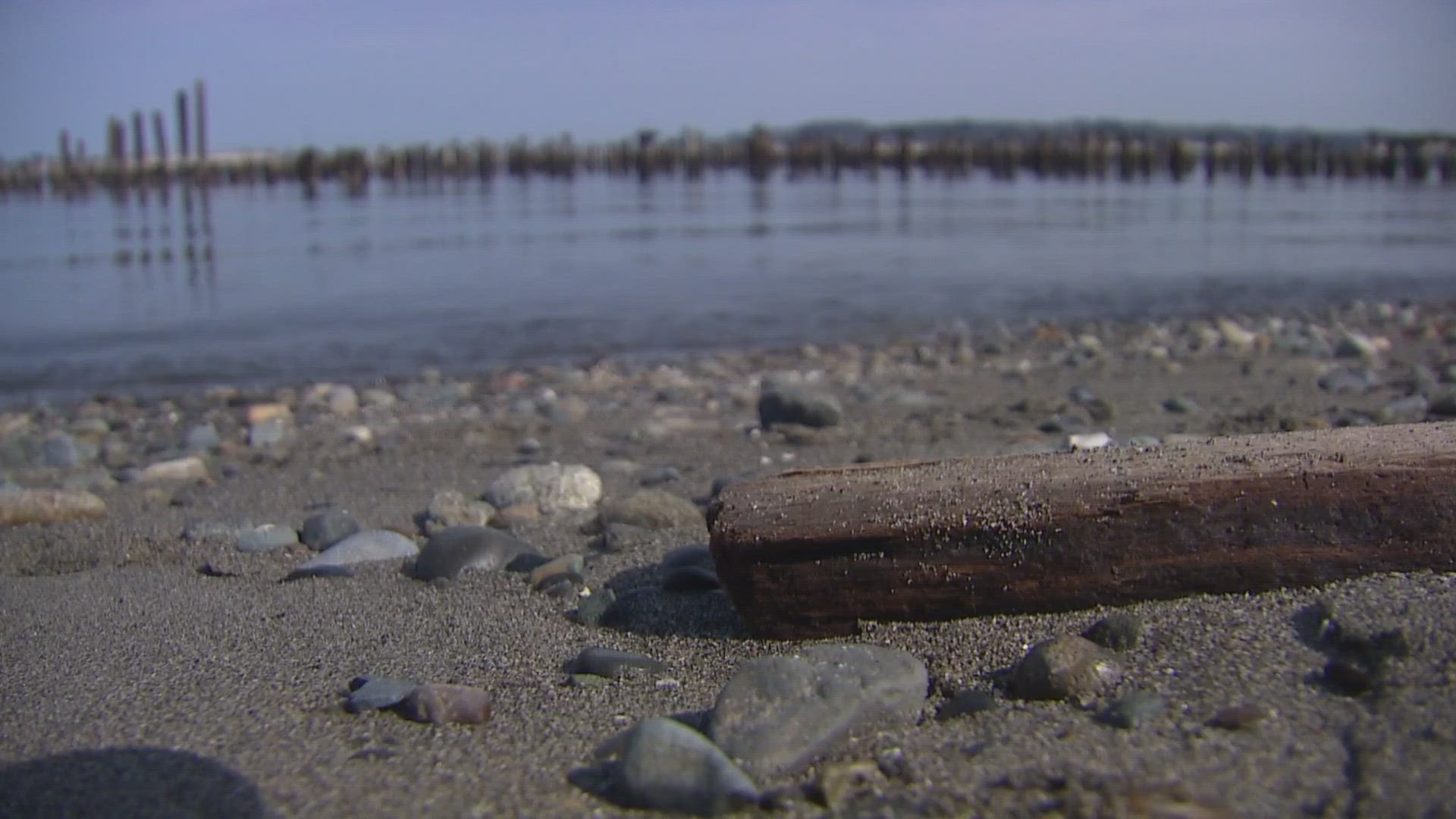TACOMA, Wash. — The remains of the Dickman Mill are a fixture in Christian Farrier’s commute.
Farrier recently moved to Tacoma from Los Angeles and works as a teacher at the Science and Math Institute.
As he rides his bike to and from the Institute, Farrier says he’s come to appreciate the view of the pilings coming out of the water.
“I see it every morning, and every afternoon,” he said. “It’s pretty, it’s part of my commute, it’s one of the things I see. I do really enjoy it.”
But new legislation may remove those pilings once and for all.
City, tribal and state leaders met in Tacoma’s Commencement Bay to highlight the importance of House Bill 1378.
The Dickman Mill went out of business in 1977, and its remains are known by elected officials as one of the “Filthy Four,” a group of industrial sites that most threaten public safety and the environment.
HB 1378 would provide close to $20 million to remove the sites.
Commissioner of Public Lands and Pierce County-born Hilary Franz says the state has a responsibility to protect and preserve Washington’s waterways.
“My family’s been in Pierce County since 1938,” she told the crowd. “I’d come down here, and would look at these structures and wonder why they weren’t removed. My children look at these structures and go, why are they still there? It’s not a working framework or structure, why are they still here?”
The legislation would also allow access to the Department of Natural Resources’ expertise to get these kinds of structures out of the state’s waterways.
Tacoma Mayor Victoria Woodards says the state stepping up like this is a big help for local governments that have only so many resources to go around.
“We’ve got to make sure that we take care of all the needs that affect our waterfront, like removing these pilings,” Woodards declared. “So often in local government, these projects are really important, but we have so many things that we’re focused on as a city, so many things that we have to fund.”
Given the environmental impact, Farrier understands why the pilings have to be taken out.
“If it’s an environmental hazard, then I’d absolutely understand that it needs to go. Cuz it’s certainly not worth fouling the water, or wildlife itself, just for something that’s sort of nice to look at.”
Although the legislation has passed through the House, it now has to make its way through the Senate. HB 1378 was introduced on March 8, and is currently in committee.

